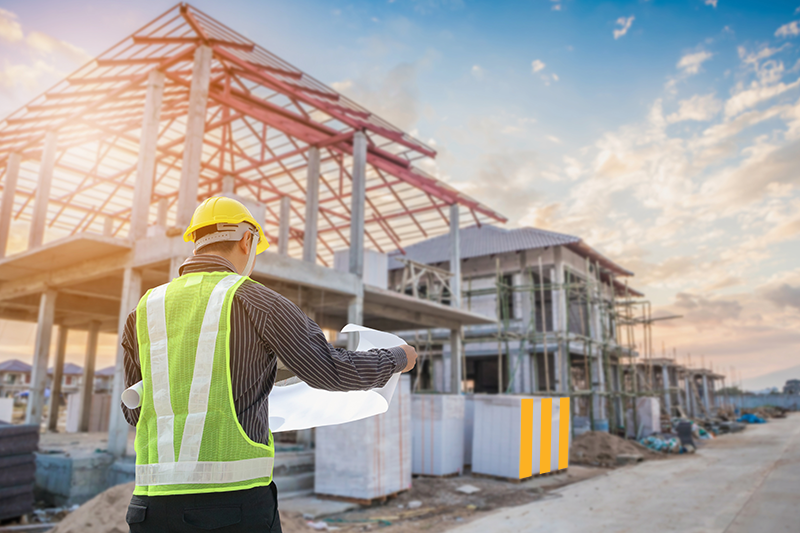Buying a pre-construction home even during the best of times can be stressful. Add in a global pandemic, and things have the potential to reach a whole new level of unpredictability.
Like the proverbial “wrench in the gears,” COVID-19 has disrupted many aspects of our daily life and the world we live in.
If you’re thinking about buying a pre-construction home or you’re waiting for your new home to be move-in ready, here are a few things you can do to help prepare yourself for some of the most stressful potential impacts of COVID.
Have a game plan for potential delays
Your closing or occupancy date is something you agree on with your builder at the time of sale and is included in your purchase agreement. Based on the terms of your agreement, your builder may be able to extend this date. All this information can be found in the Addendum section of your purchase agreement, and we encourage you to review it carefully.
There are many reasons why your new home may be delayed – material shortages, lack of skilled trades, and hold ups in obtaining municipal approvals are just a few – all of which are being exacerbated by the pandemic.
Our best advice is to prepare yourself for a delay. Think about how you would deal with things like temporary accommodation, storage for your possessions, etc. Depending on your situation, if you do experience a delay you may be eligible to make a claim for compensation under your new home warranty after you move in.
Know the rules around substitutions
![]() Since the pandemic has upended supply chains, your builder may be required to substitute certain materials with others that are available to complete your home. This is allowed only under the following conditions:
Since the pandemic has upended supply chains, your builder may be required to substitute certain materials with others that are available to complete your home. This is allowed only under the following conditions:
- If your purchase agreement includes the right to select certain items of construction or finishing – such as cabinets, countertops, or bathroom fixtures – these usually cannot be substituted without your written consent.
- In cases where a particular item is specified in your purchase agreement, your builder must ensure that the substitution is of equal or better quality than the original item.
For more information on the process for making selections, click here.
Builders who do not follow these requirements when swapping materials are making “unauthorized substitutions,” a situation which your new home warranty protects you against for one year from your date of possession or occupancy. Therefore, if you’re unable to resolve the matter directly with your builder, you can make a claim to ask Tarion for our help.
Understand how your deposit is protected
If for some reason your purchase agreement is cancelled or terminated, your builder must refund your deposit to you. This includes fees you may have paid for upgrades and other extras. If the builder does not return your deposit, your new home warranty offers deposit coverage.
For freehold homes, deposit coverage under the new home warranty is based on the purchase price. If your home costs $600,000 or less, your deposit is covered for up to $60,000. If your home costs over $600,000, you’re covered for 10% of the purchase price to a maximum of $100,000.
Condominium buyers benefit from two kinds of deposit protection. To begin with, the Condominium Act requires that your builder place your deposit in trust and return it to you in the event the purchase agreement is cancelled or terminated. If that doesn’t happen, you have up to $20,000 in deposit coverage under the new home warranty.
Click here for more information about deposit protection, including how to make a claim to Tarion for a deposit refund.
Don’t forget the PDI
The pre-delivery inspection (or PDI) is your opportunity to document the condition of your new home before you move in. Under normal circumstances, you and your builder would walk through your home together and make note of items that are damaged, missing, incomplete or not operating properly.
In the current situation, Tarion does not consider it absolutely necessary that a PDI occur in the presence of both the purchaser and the builder. You and your builder can conduct a PDI together if you both agree to the conditions under which it would be carried out and follow the latest provincial COVID-19 health and safety guidelines.
If it’s not possible for you to conduct a PDI with your builder, you should conduct your own inspection as soon as possible after taking possession or occupancy. Document any issues as best you can (e.g., using photos and/or videos). When you’re done, communicate your list of items to your builder so that they can get started on work to resolve them, and keep your documentation handy in case you need to make a warranty claim and ask for Tarion’s assistance.
To be clear: Not conducting a PDI with your builder does not impact your warranty or your rights.
Tarion is here to help!
In these times of uncertainty, you may not have all the answers or be able to anticipate everything that might happen. However, sometimes just knowing who to turn to for help is a great comfort. As the administrator of Ontario’s new home warranty and protection plan, Tarion can guide you through a lot of the twists and turns you might encounter in your new home buying journey.
Remember that we are here for you, and be sure to contact us if you have any questions or need assistance.
